AXEMEN
AXEMEN, formed in 1983, are notorious for an anarchic style of rock and roll with a multi-media "total art" approach. Founding band members Steve McCabe and Bob Brannigan are both extremely prolific songwriters.
Although Brannigan would eventually depart in order to concentrate on leading his garage rock band, Shaft, the long term on-and-off partnership with McCabe resulted in the ongoing release of an enormous output of recordings, mostly in a home-made cassette format but also including vinyl & CD releases on such labels as Flying Nun and Siltbreeze.

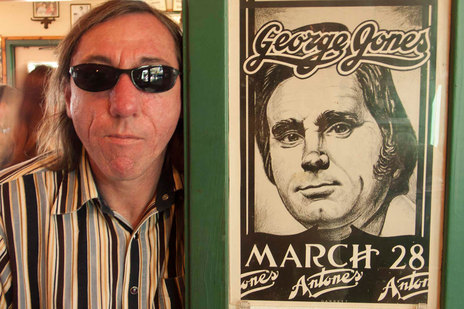
Bob Brannigan with George Jones, Texas, 2009
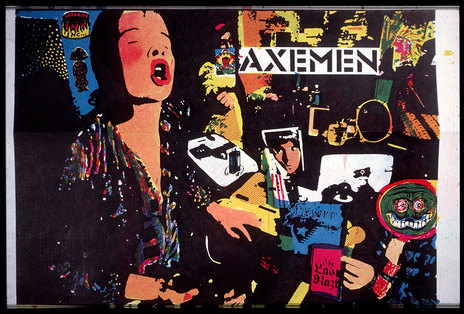
Screenprinted poster from the 1980s
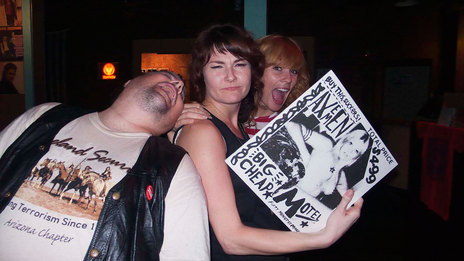
Little Stevie McCabe and fans, Memphis 2009
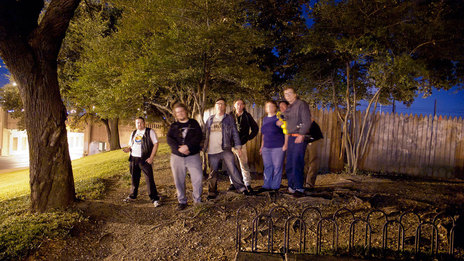
The AXEMEN on The Grassy Knoll, Dallas, 2009
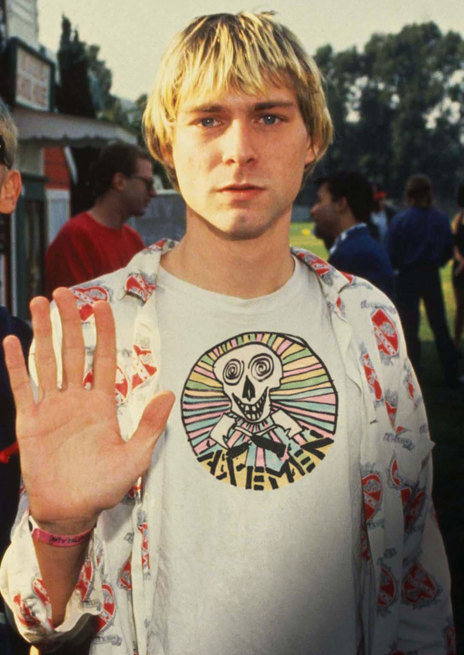
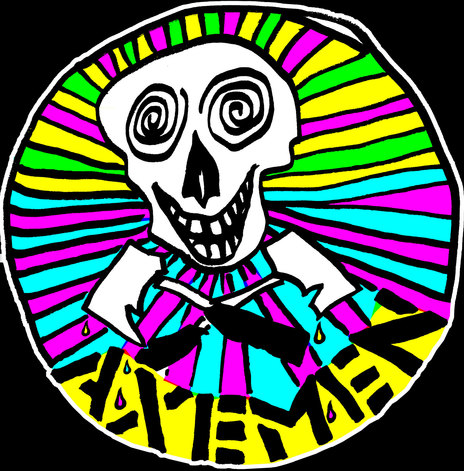
US T-Shirt logo, 2009
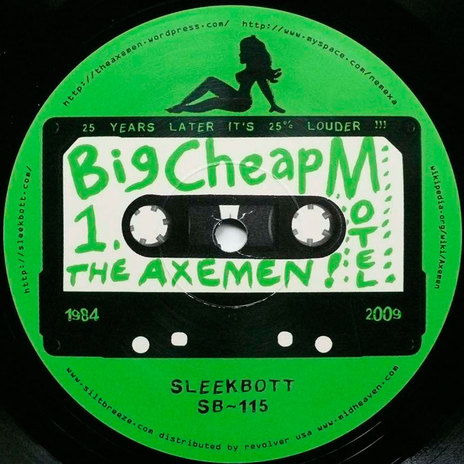
The 2009 Siltbreeze vinyl reissue of the 1984 Big Cheap Motel cassette
AXEMEN - Point That Thing (Golden Dawn 19/12/14)
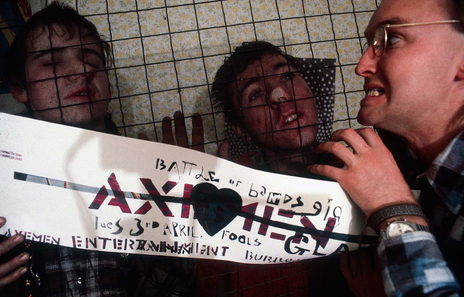
The AXEMEN, 1984: Stevie McCabe, Bob Brannigan, Stu Kawowski
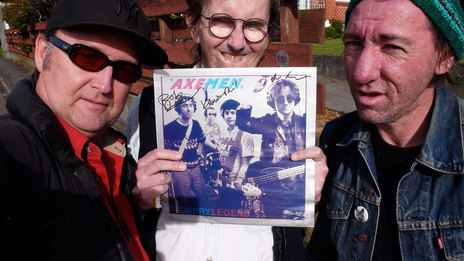
Stu Kawowski, Dragan Stojanovic and Bob Brannigan, May 2009
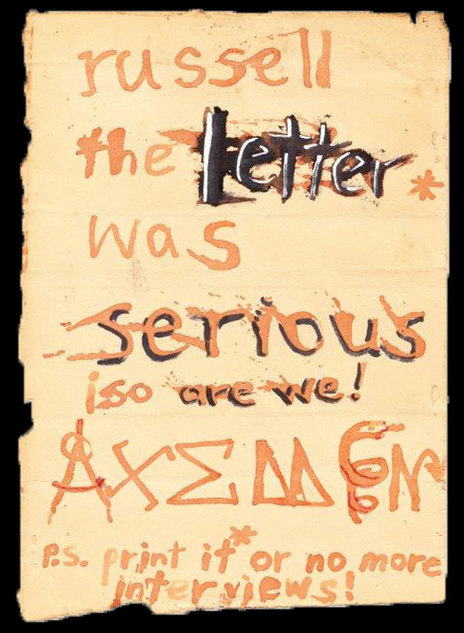
The Axemen write to Russell Brown at Rip It Up. The letter itself is lost in time.
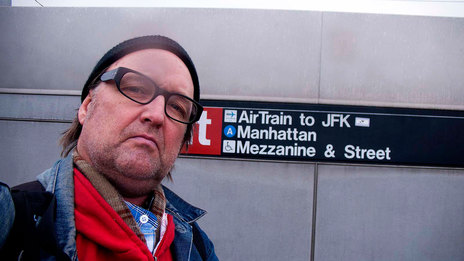
Stu at the end of the 2009 US tour
AXEMEN performing Hey Alice! live on TV3's Yahoo, 1992 (HD 2024)
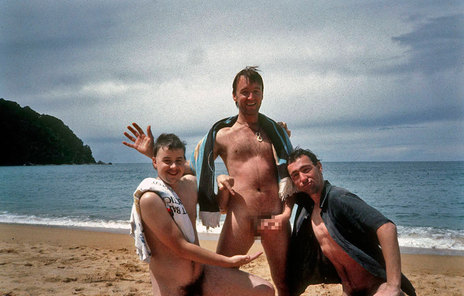
The AXEMEN as one with nature at Totaranui Beach, Golden Bay, 1986
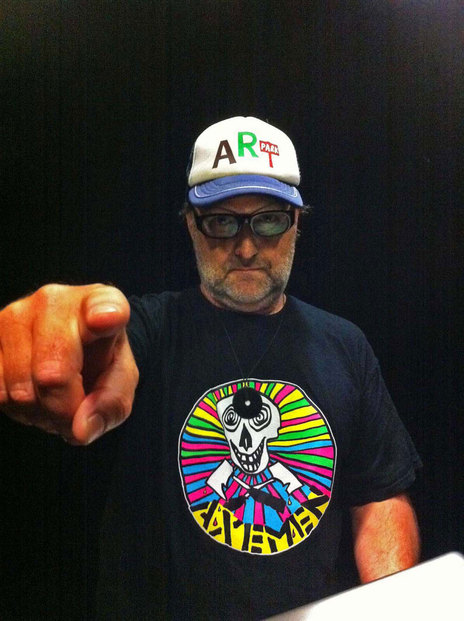
Stu Kawowski in New York City, 2012
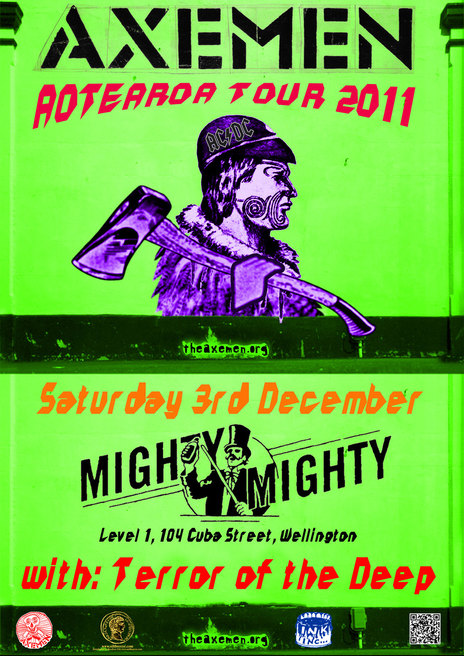
The AXEMEN at Mighty Mighty, 2011
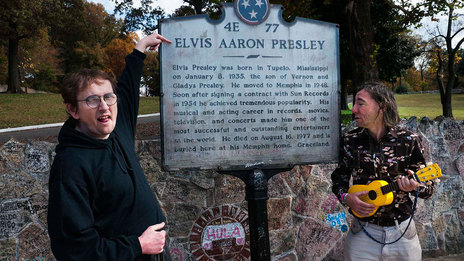
Dragan and Bob at Graceland, Memphis Tennessee
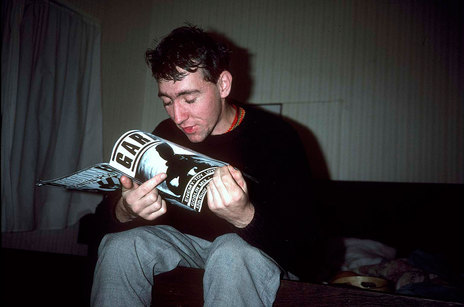
Bob Brannigan reading Garage, 1985
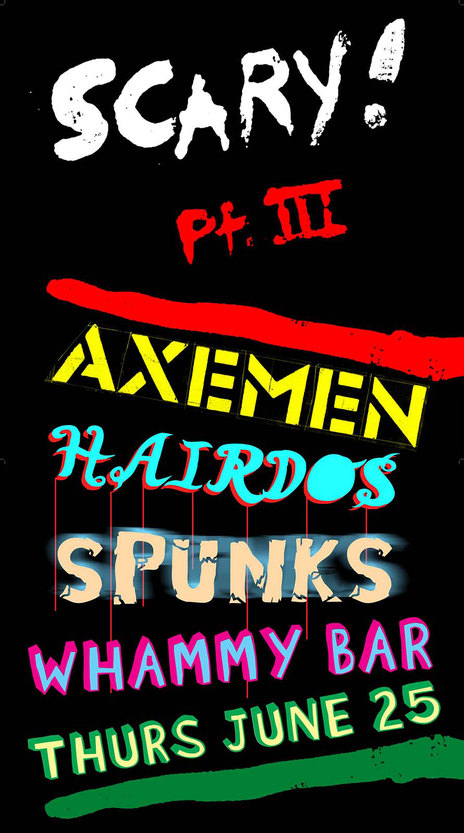
The AXEMEN and friends at Auckland's Whammy Bar, 2009
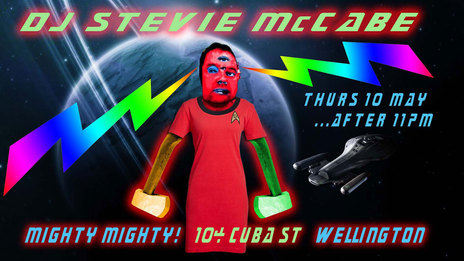
DJ Stevie McCabe at Mighty Mighty, Wellington, 2010
Photo credit:
Design by Stu Page
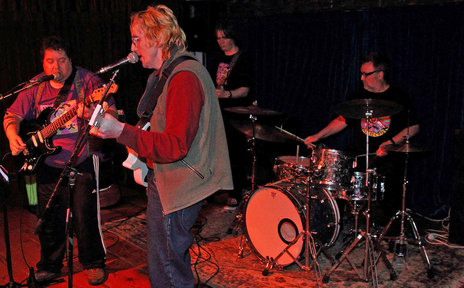
The AXEMEN at the Pyramid Club, Wellington, September 2014
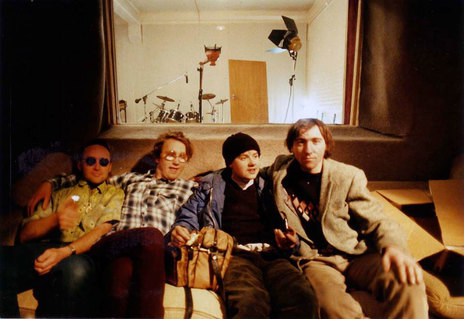
Derry Legend recording session at Writhe Studio (1987), left to right: Stu Kawowski, Dragan Stojanovic, Little Stevie McCabe and Bob Brannigan
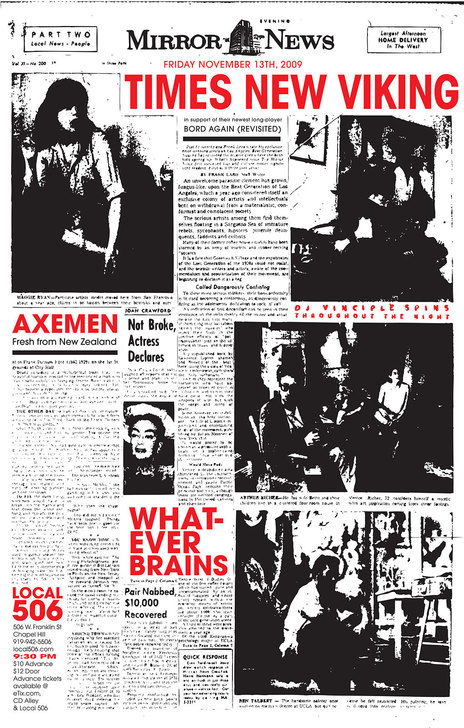
November 2009 poster for Local 506, Chapel Hill, North Carolina
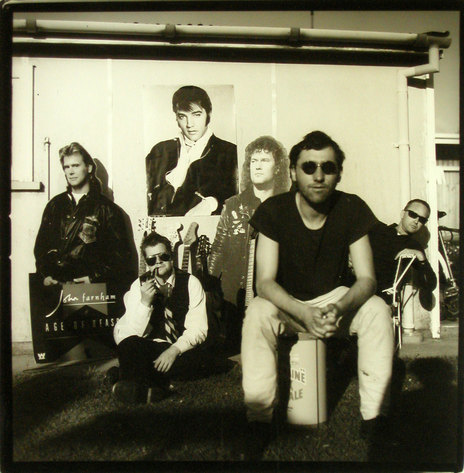
The AXEMEN at Hell Farm in the early 1980s
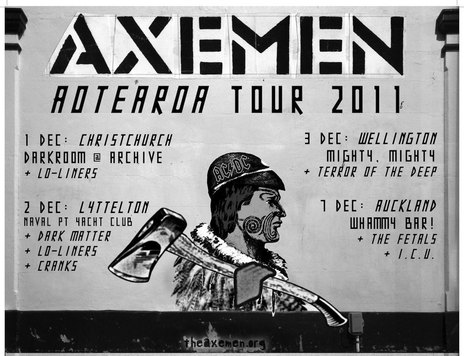
The 2011 NZ tour poster
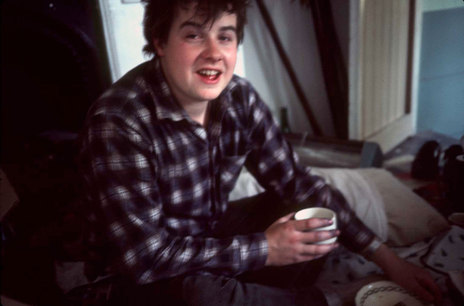
Stevie McCabe, 1983
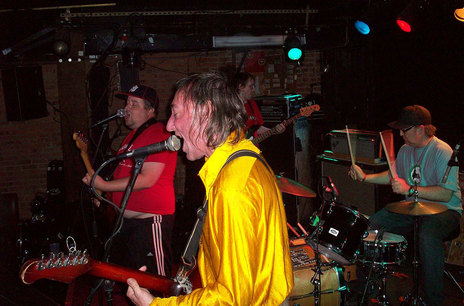
The AXEMEN at The Mercury Lounge, NYC, 2009
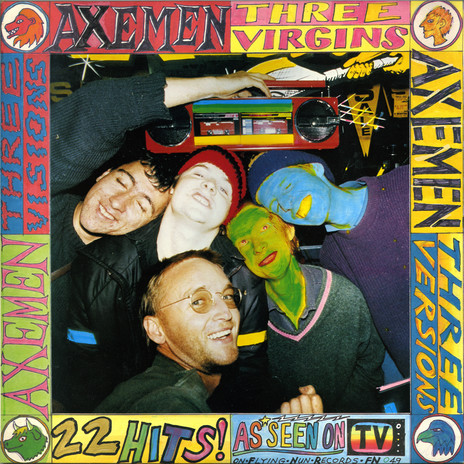
Front cover of AXEMEN Three Virgins double vinyl LP (Flying Nun Records, FN 49, 1986)
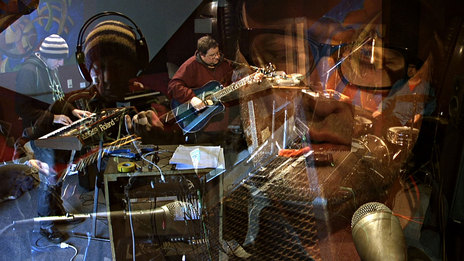
The AXEMEN recording, 2009
AXEMEN - Mourning of Youth (Filmed in 1987, Remastered in 2024)
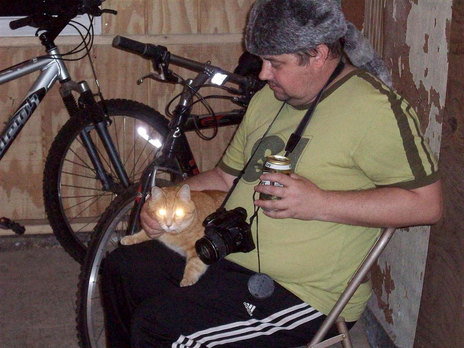
Stevie McCabe in Columbus, Ohio, 2009
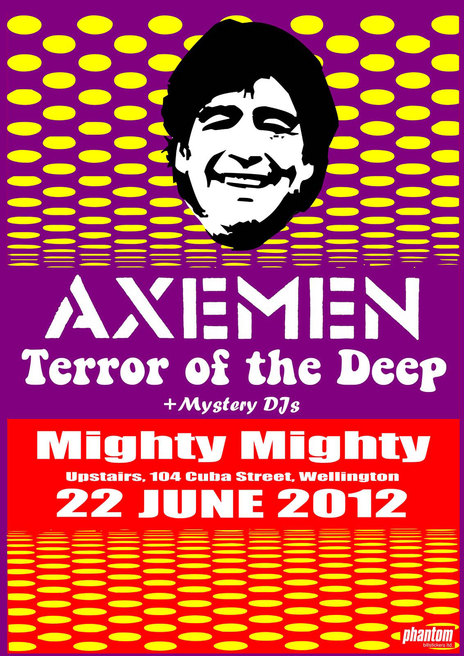
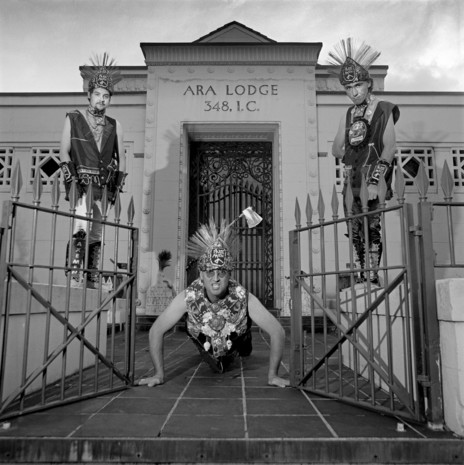
Stuart Page with his band AXEMEN at the Ara Lodge No 348 I.C., Airedale Street, Auckland 1990
Photo credit:
Paul McCredie
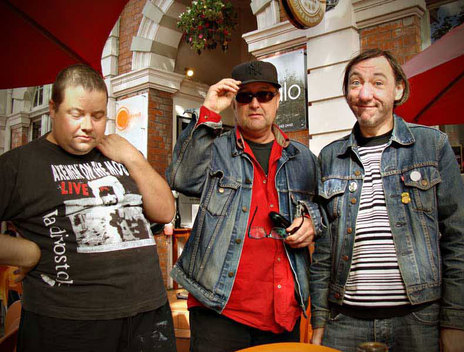
Stevie McCabe, Stu Kawowski and Bob Brannigan
Photo credit:
Photo by Renée Barrance
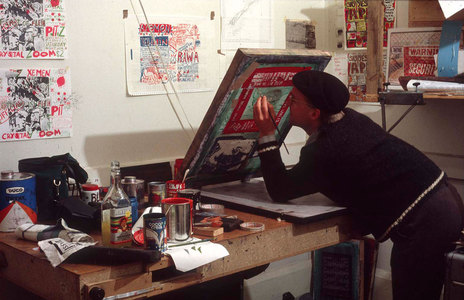
Stu Kawowski in his High Street Ink Inc. studio in Christchurch, 1984
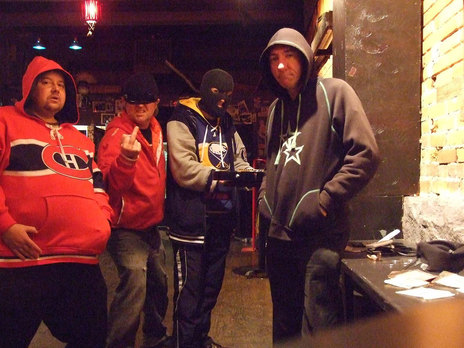
The AXEMEN, Morgantown, West Virginia 2009
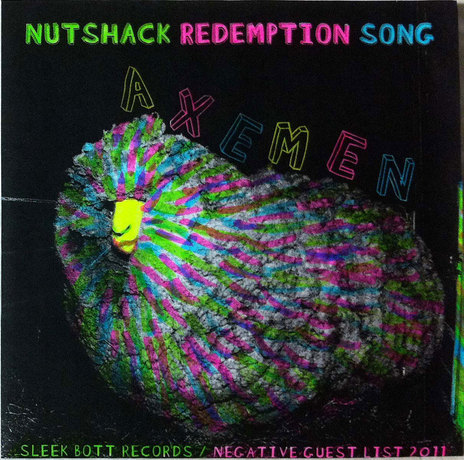
Nutshack Redemption Song, 2011, side AAA of the AXEMEN Nutcracker Suite Australian tour 7-inch
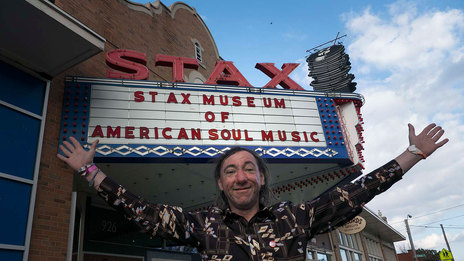
Bob Brannigan at the Stax Museum, Memphis, 2009
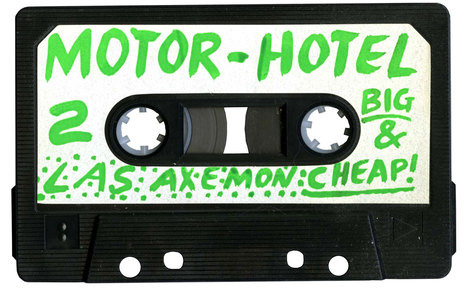
The 1984 Big Cheap Motel cassette
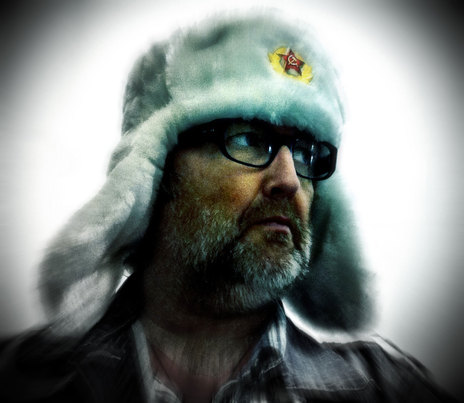
Stu Kawowski of the AXEMEN, 2012
Photo credit:
Stuart Page
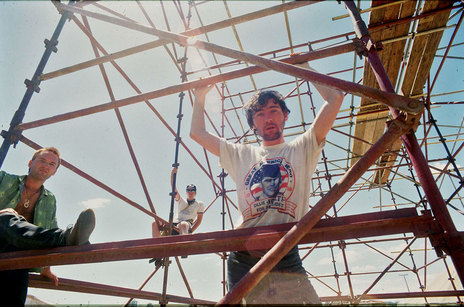
The AXEMEN on the site of the failed music festival Neon Picnic in January 1988
Photo credit:
Stuart Page collection
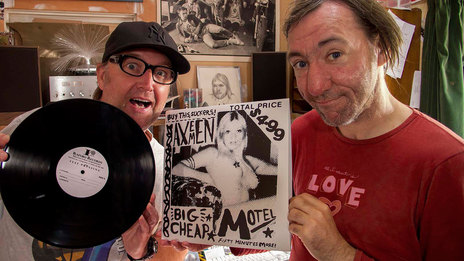
Stu and Bob with the test pressing of Big Cheap Motel, 2009
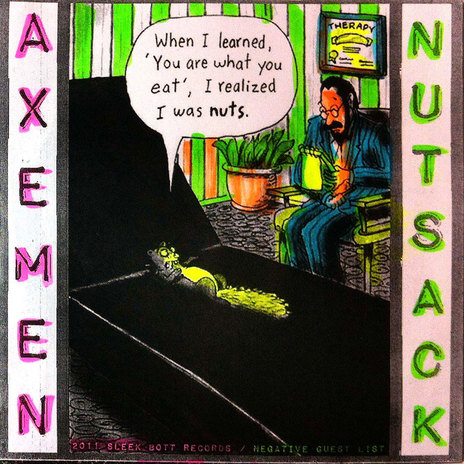
Nutsack (2009) side AA of the 2011 AXEMEN Nutcracker Suite Australian tour 7-inch
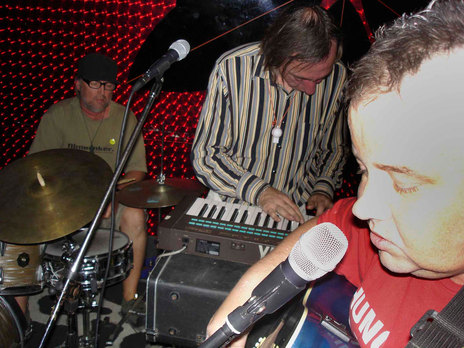
The AXEMEN at the Ambassador, Pt. Chev, Auckland 2009
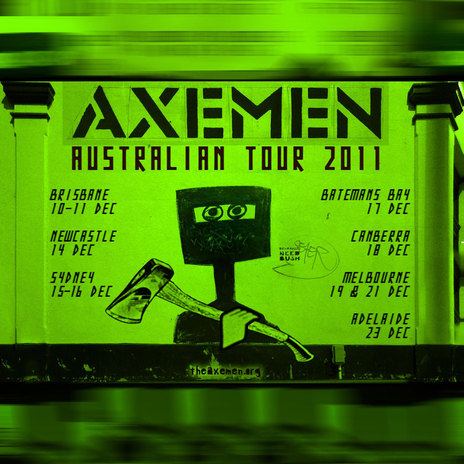
The 2011 Australian Tour poster
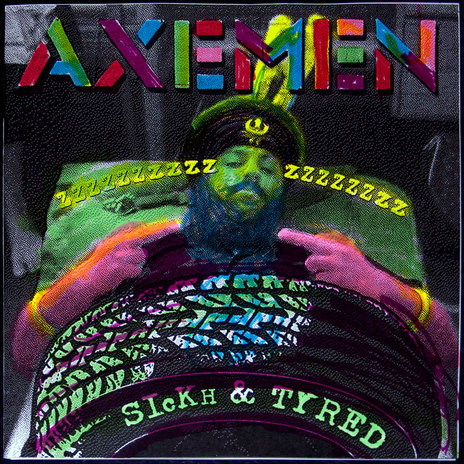
Sickh & Tyred 7-inch sleeve. A split release with Times New Viking in 2009, it was released for the tour and only available at the gigs.
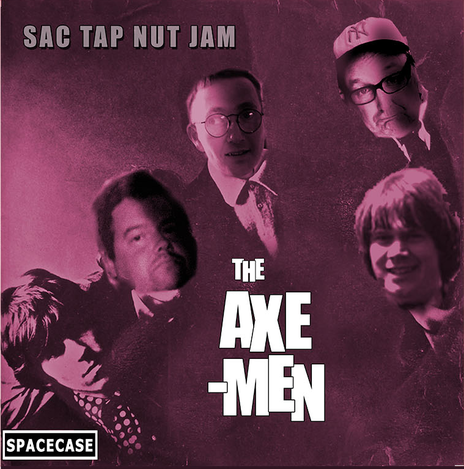
The sleeve for 2013's Sac Tap Nut Jam, released by US label Spacecase Records
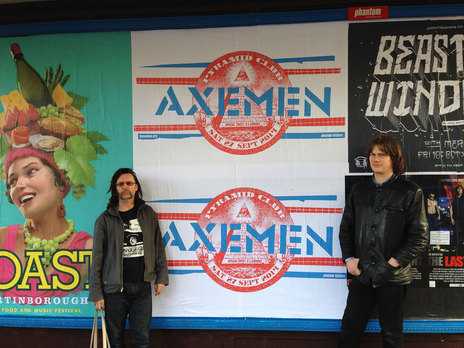
Wellington 2014
Drink For The Heart... (1985, directed by Lawrence Lens)
AXEMEN full set at The Phoenix, Canberra, Australia (18 Dec 2011)
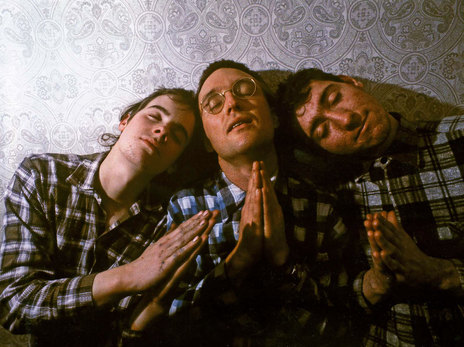
Stevie McCabe, Stu Kawowski and Bob Brannigan, Christchurch 1980s
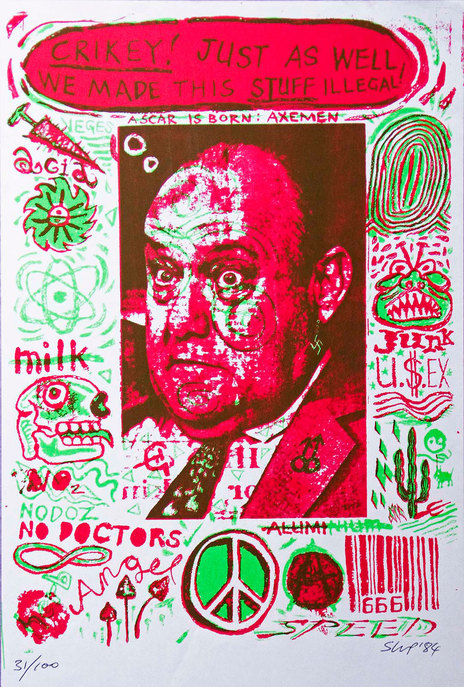
A Scar is Born, 1984
Photo credit:
Design by Stu Page
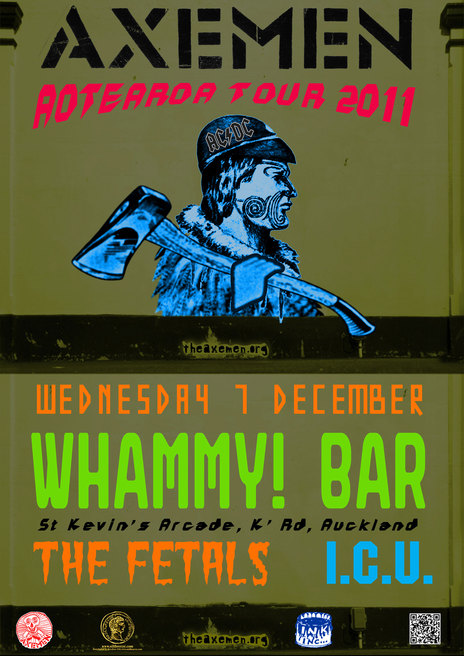
The AXEMEN at Auckland's Whammy Bar, 2011
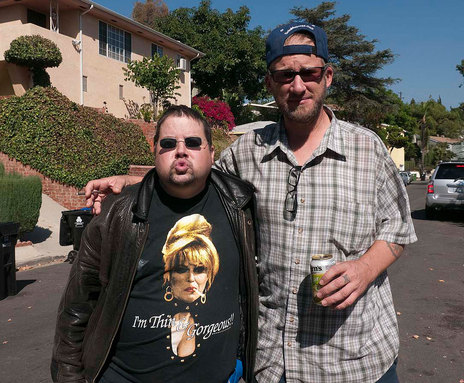
Stevie McCabe and Steve 'Humann' Pfauter, a Los Angeles punk legend, LA 2009
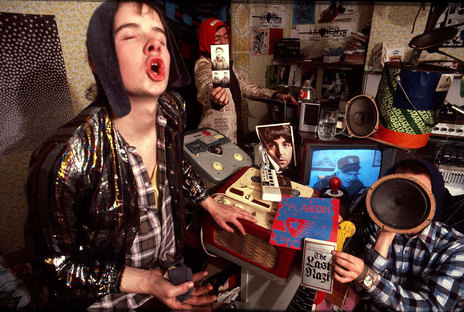
The AXEMEN at Peterborough Studios, Chrischurch 1984
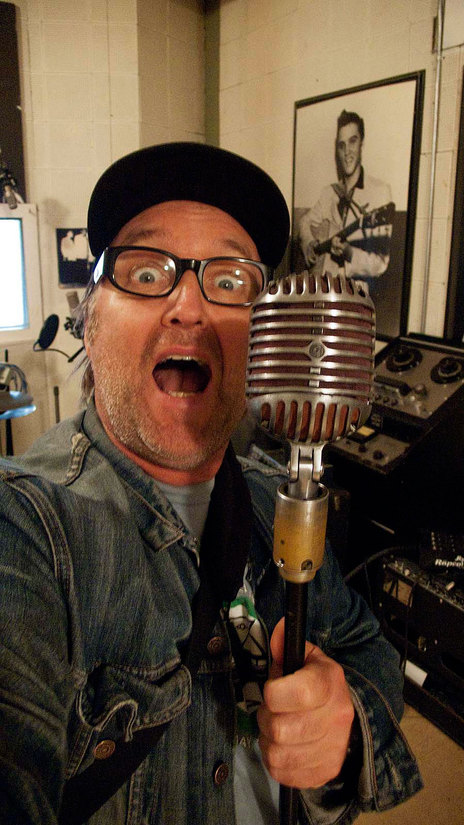
Stu at Sun Studios, Memphis 2009
Rock'n Roll Legend (1987)
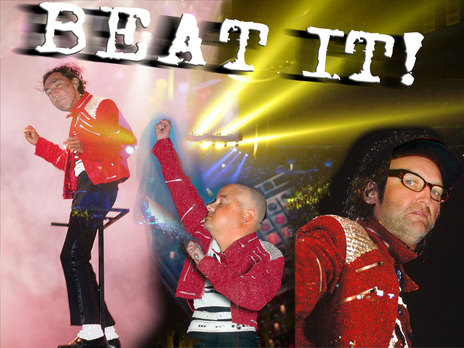
The cover for the 2009 digital release of Beat It, recorded live at the Star & Garter Hotel, Christchurch, November 1983
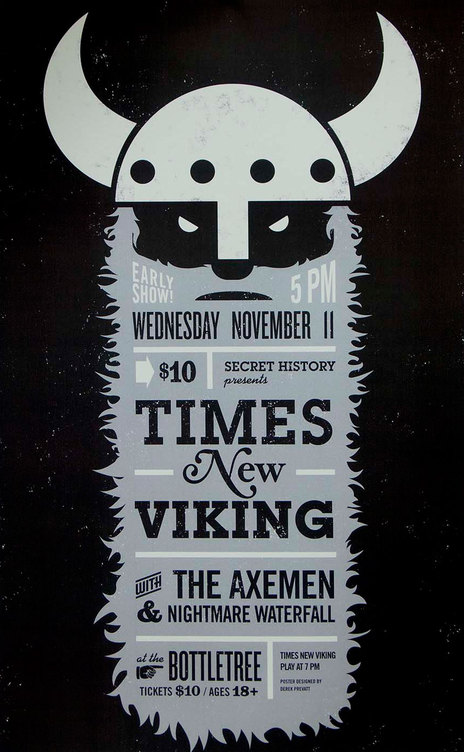
Nutsack (2009) Live on Radio WFMU, USA
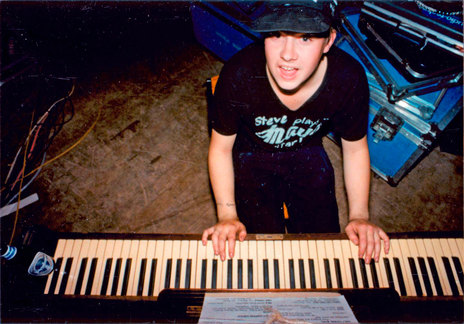
Stevie McCabe recording 3 Virgins, 1985
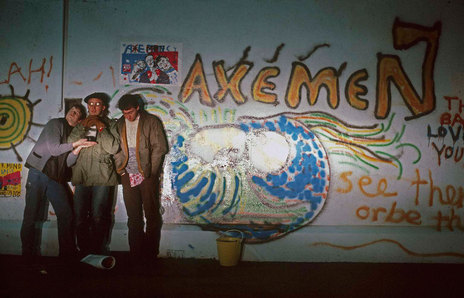
The AXEMEN tag Christchurch in 1984
Big Cheap Motel - Live at Permanent Records, Chicago, USA 2009
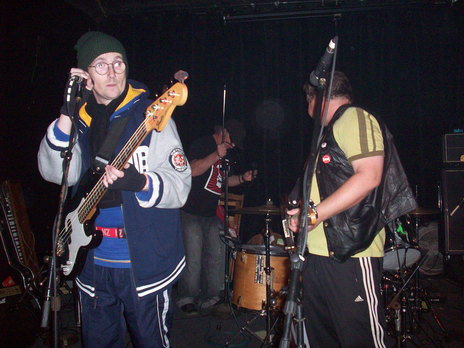
The AXEMEN in Columbus, Ohio 2009
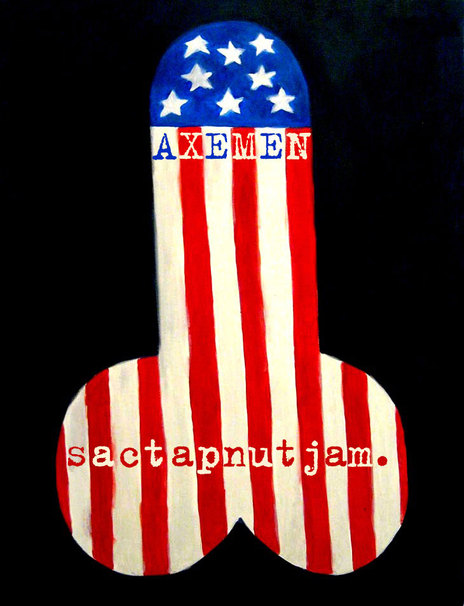
Sac Tap Nut Jam graphic, 2013
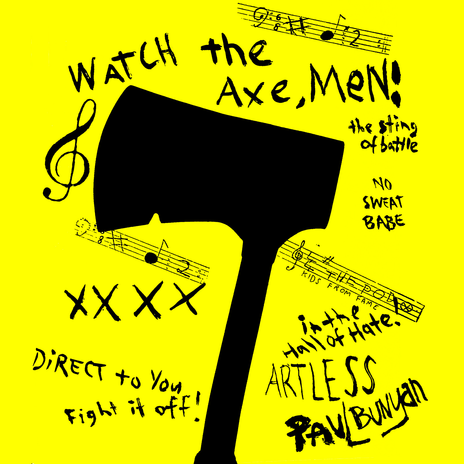
The first ever AXEMEN poster from 1983, later used as the first of two 2009 US tour T-Shirt designs
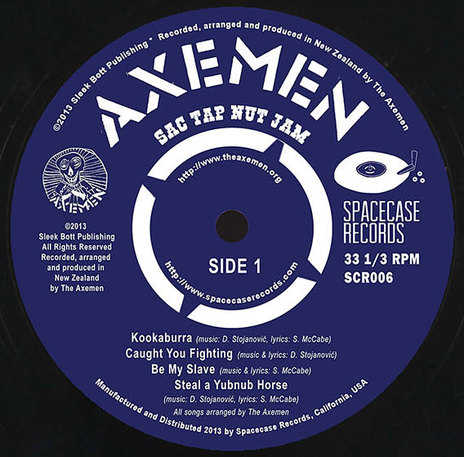
Sac Tap Nut Jam, 2013
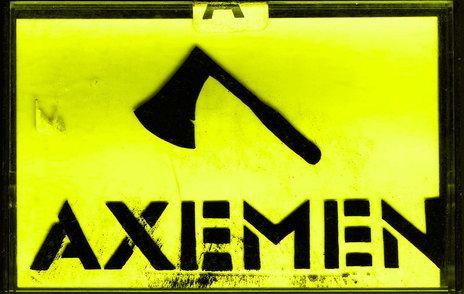
The first AXEMEN cassette Equinox from 1983
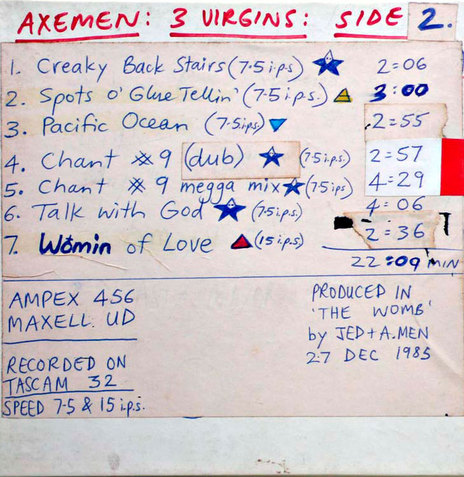
One of the 3 Virgins mastertapes
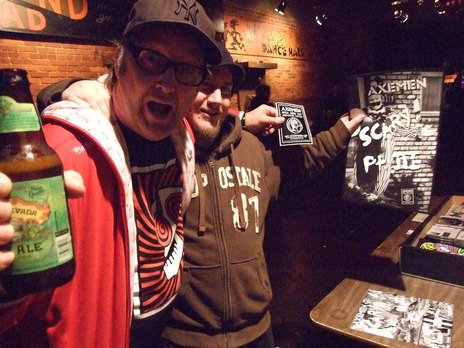
Stu Kawowski and fan, Morgantown, West Virginia 2009
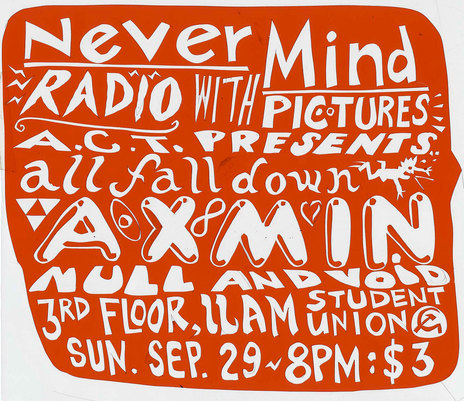
Handcut stencil poster, 1985
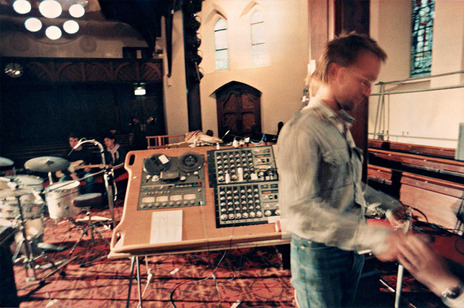
Axemen with Stu Kawowski on the right, recording Three Virgins, State Trinity Centre, Christchurch 1985
Photo credit:
photo by Larence N. Shustak
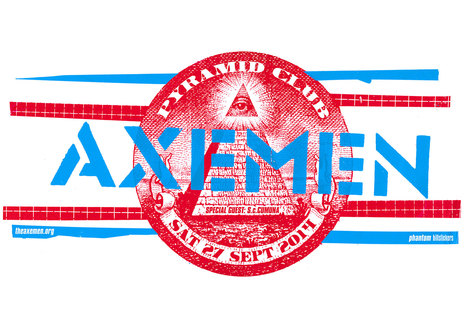
The poster for the September 2014 show at Wellington's Pyramid Club
Three Virgins (1986)
AXEMEN - The Wharf With No Name music video (1989 - HD version 2021). Filmed in Lyttelton, Wellington and Auckland harbours. Directed by Stuart Page.
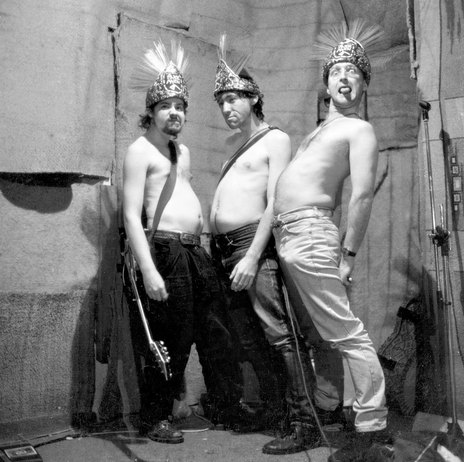
The AXEMEN 1991: Stevie McCabe, Bob Brannigan, Stu Kawowski
Carmen on Ice (1987)
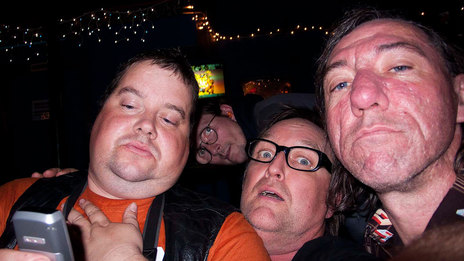
Stevie McCabe, Dragan Stojanovic, Stu Kawowski and Bob Brannigan, North Carolina 2009
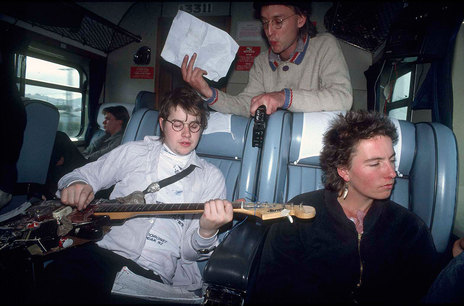
Steve McCabe and Stu Kawowski recording on the train to Whangarei, 1986
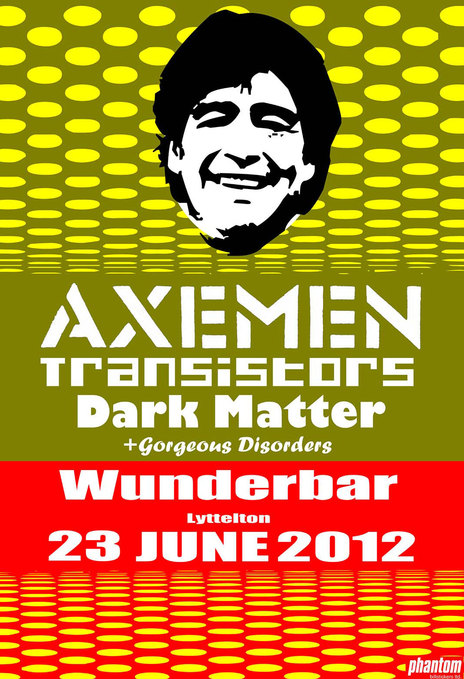
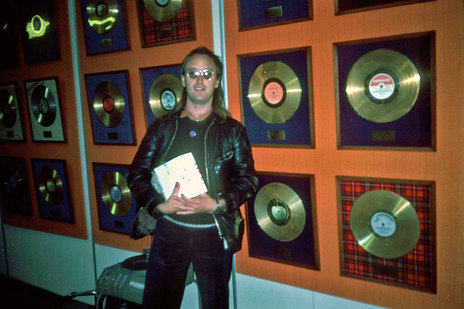
Stu Kawowski at EMI Lower Hutt to master 3 Virgins, 1986
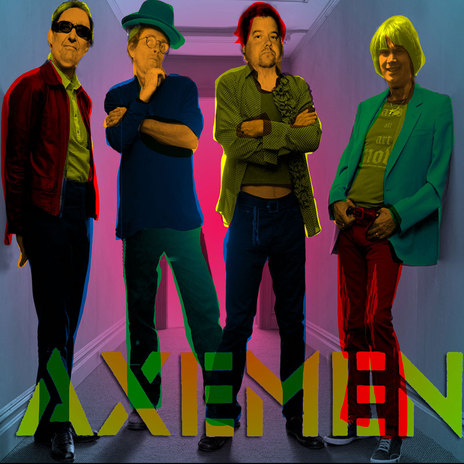
The current – since 2011 – AXEMEN lineup: Stu Kawowski, Dragan Stojanovic, Stevie McCabe, William Daymond
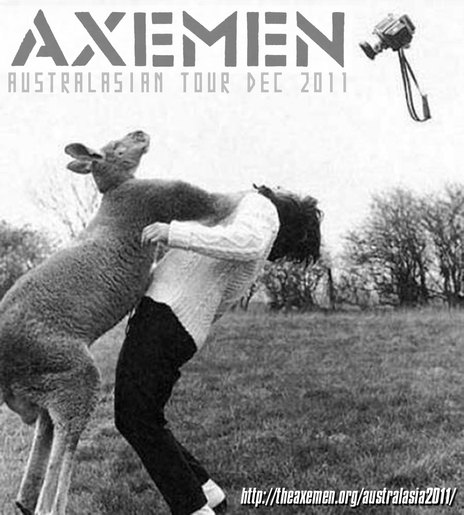
A 2011 Australasian tour flyer
Be My Slave (2009) Live on Radio WFMU, USA
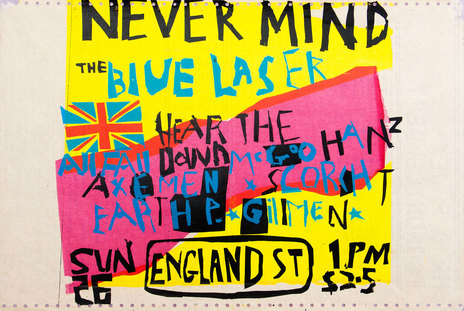
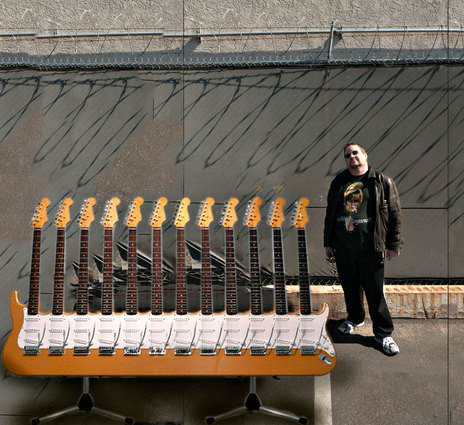
Little Stevie McCabe with a big guitar, 2011
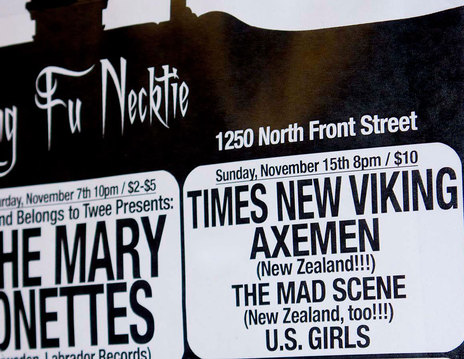
Philly, 2009
Members:
Bob Brannigan - guitar, bass, keyboards, vocals
Stu Kawowski - drums, vocals
Steve McCabe - guitar, bass, keyboards, vocals
Dragan Stojanovic - guitar, bass, keyboards, vocals
William Daymond - bass, vocals











